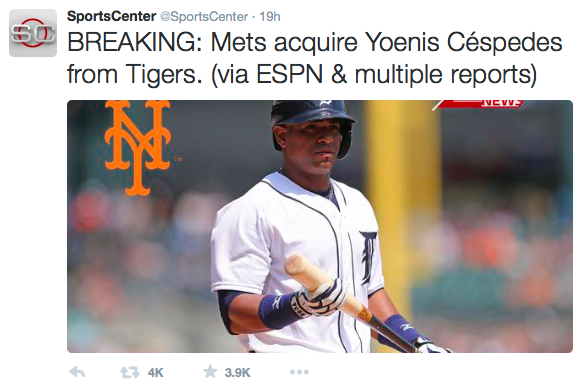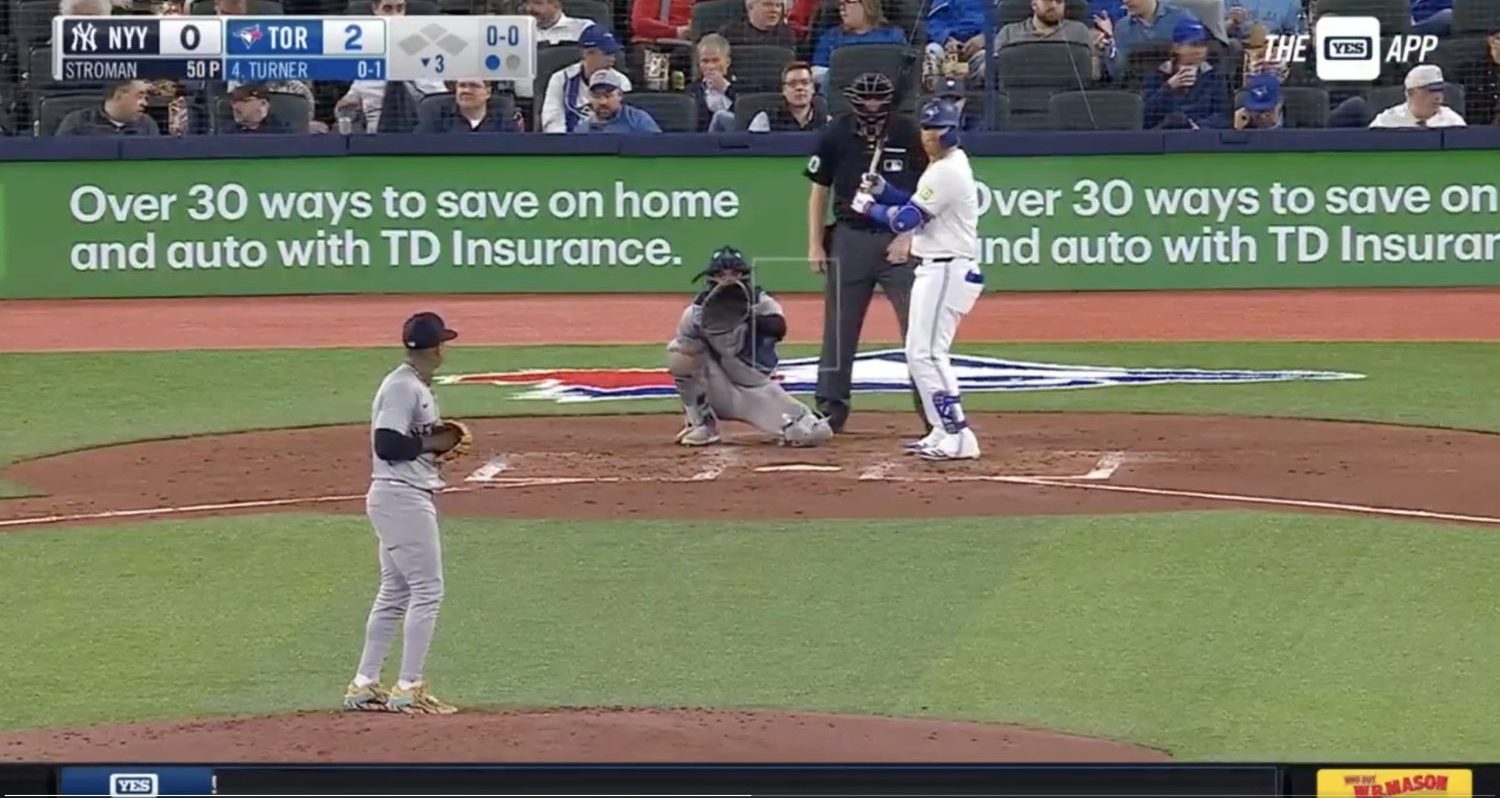If you were with us on Friday, you saw the strange timeline of events where ESPN sorta kinda avoided giving Peter King credit for breaking the news that Russell Wilson was re-signing with the Seahawks. First ESPN ignored King’s report and gave their own report that a deal wasn’t done, then when they did report it, they credited ESPN AND Sports Illustrated for the story. A backdoor way of trying to pat themselves on the back if there ever was one.
It couldn’t be a coincidence then that King was highly complimentary of baseball reporters who properly credited one another at the trade deadline… and didn’t include anyone from ESPN.
Love how all these baseball guys–@Joelsherman1, @JonHeymanCBS, @Ken_Rosenthal, others—are so quick to credit each other on scoops.
— Peter King (@peter_king) July 31, 2015
So how did ESPN report on the trade deadline themselves? A quick cursory glance at the @SportsCenter Twitter account tells an interesting story. We went back through the last week and examined how SportsCenter broke the news of trades that took place and how the outlet chose to source the story. It turns out that Multiple Reports won the day in a landslide…
Michael Morse: Multiple Reports
Yoenis Cespedes: ESPN & Multiple Reports
Ben Revere: Todd Zolecki, MLB
Dan Haren: ESPN & Multiple Reports
Jonathon Broxton: no outside source
Mike Leake: ESPN & Multiple Reports
Carlos Gomez (Astros): CBS Sports
Joakim Soria: no outside source
David Price: ESPN & Media Reports
Brandon Moss: no outside source
Cole Hamels: Jayson Stark, Jim Bowden & Multiple Reports
* Carlos Gomez (Mets): Multiple Reports
Mat Latos/Michael Morse: Multiple Reports
Jonathan Papelbon: Multiple Reports
Ben Zobrist: Jerry Crasnick & Multiple Reports
Troy Tulowitzki: Fox Sports
Scorecard:
ESPN & Multiple/Media Reports – 6
Multiple Reports – 4
No Sourcing – 3
Outside Outlets – 3
The liberal use of “Multiple Reports” and “ESPN & Media Reports” is far from perfect. In fact, it’s become something of a running gag for a reporter who breaks a news story to expect their name to be changed to “Media Reports.” And given the scorecard above, the use of “Media Reports” is becoming very prevalent inside Bristol… almost as much as “Sources” was a few years ago. And it’s easy to see why that’s advantageous to ESPN – because an ESPN follower can’t exactly Google “Media Reports” to see what other content they may have that’s worth consuming.
In fairness to ESPN, they have GREATLY improved their sourcing policy from years ago when they would attach “Sources” to EVERYTHING, including reports from the competition. As seen above, ESPN will actually credit other outlets and reporters by name with scoops from time to time. The partial credit is at least a small step forward, but as we examined in detail earlier this year, it’s really only a half measure that ESPN can also greatly improve upon.
In addition, it’s done with such confusing and needless inconsistency that creates the laughable scenario seen with Peter King where ESPN tries to take credit for breaking a story they said wasn’t broken yet. Why is it that only sometimes ESPN credits other outlets and writers by name? Why is it that sometimes they choose to run a story based on “Multiple Reports” (like the initial Carlos Gomez trade to the Mets that didn’t go down) and on other occasions they butt in with “ESPN & Multiple Reports”? On the whole, it just doesn’t make a lot of sense. It’s almost like watching ESPN play with a Random Sourcing Generator for their breaking news.








Comments are closed.